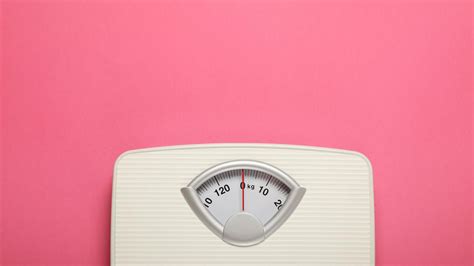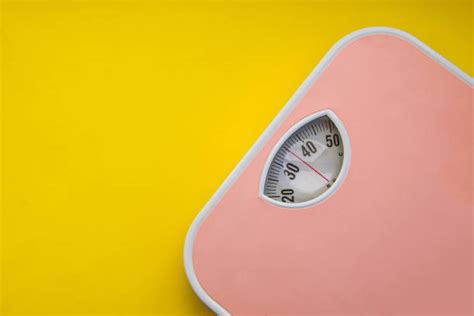Maintaining a healthy weight is crucial for seniors, not just for aesthetics but for overall well-being. As we age, our metabolism slows down, making it more challenging to shed excess pounds. However, weight loss can still be achieved safely and effectively with the right approach. This guide will explore instant weight loss tips tailored specifically for seniors, focusing on balanced meal planning, hydration, portion control, and nutrient-dense foods. We’ll also highlight the importance of regular physical activity, mindful eating practices, and safe supplement use. By following these strategies, seniors can achieve their weight loss goals while ensuring their nutritional needs are met.
Discover the intricacies of this topic with ujocis.net
1. Balanced Meal Planning
A balanced meal plan is crucial for seniors seeking effective weight loss. As we age, our dietary needs evolve, demanding a meal plan that provides the right blend of nutrients for optimal health. Prioritize a diverse diet rich in fruits, vegetables, lean proteins, whole grains, and healthy fats. These food groups are packed with essential vitamins, minerals, and fiber, which contribute to sustained energy levels and digestive well-being. Equally important is aligning calorie intake with energy expenditure, ensuring you consume no more calories than your body requires. Preparing meals at home provides greater control over ingredients and portion sizes, minimizing the intake of processed foods high in sugar, salt, and unhealthy fats. Aim for smaller, more frequent meals throughout the day to keep your metabolism active and prevent overeating. By prioritizing balanced meals, seniors can achieve gradual, sustainable weight loss while enjoying a wide range of nutritious foods.

2. Hydration Importance
For seniors aiming to lose weight, proper hydration is a crucial yet often overlooked factor. As we age, our thirst cues become less pronounced, increasing the risk of undetected dehydration. Hydration is essential for supporting metabolism, aiding digestion, and regulating body temperature. Furthermore, staying adequately hydrated throughout the day can help curb hunger pangs, as thirst is sometimes misconstrued as hunger, leading to unnecessary snacking.
Staying properly hydrated is crucial for overall health and well-being. Aim to consume at least eight glasses of water daily, or increase your intake if you engage in regular physical activity. Including water-rich foods like cucumbers, watermelon, and oranges in your diet can also support your hydration goals. For those who prefer flavored options, herbal teas and broths are excellent alternatives. However, be mindful of beverages high in sugar or caffeine, as they can have dehydrating effects and may hinder weight loss efforts.
Staying hydrated is crucial for seniors. Having a water bottle readily available and setting regular reminders to drink can create a consistent hydration routine. By making hydration a priority, seniors can not only support their weight loss efforts but also enhance their overall health and energy levels.

3. Portion Control
For seniors, portion control is a vital aspect of weight management. As metabolism naturally slows with age, the body requires fewer calories to function. This makes it crucial for seniors to be mindful of portion sizes to prevent overeating. Understanding appropriate portion sizes for different food groups can help seniors maintain a balanced diet without consuming excess calories.
Using smaller plates, bowls, and utensils is a simple yet effective strategy for portion control. This change can make portions appear larger, helping to satisfy hunger while reducing the risk of overeating. Additionally, serving meals directly onto plates, instead of eating from packaging or large serving dishes, can help avoid the temptation to eat more than necessary.
Familiarizing yourself with serving sizes is essential. Use measuring cups and spoons until you can comfortably estimate portions visually. A helpful tip is to divide your plate into sections. Fill half with vegetables, one-quarter with lean proteins, and one-quarter with whole grains. This creates a balanced meal that is both filling and nutritious.
Taking your time to eat and savor each mouthful gives your body the opportunity to signal fullness, lessening the chance of overindulging. Practicing portion control allows seniors to enjoy their favorite foods in moderation, aiding weight management goals and promoting better digestion and overall well-being.

4. Nutrient-Dense Foods
For seniors, incorporating nutrient-dense foods into their diet is crucial for healthy weight loss. These foods, rich in vitamins, minerals, and essential nutrients, are relatively low in calories. By providing the body with the necessary fuel for daily activities and contributing to overall health, they are an ideal choice for weight management.
Nutrient-dense options include fruits, vegetables, lean proteins, whole grains, and healthy fats. For example, leafy greens such as spinach and kale are packed with vitamins and antioxidants. Lean proteins like chicken, fish, and legumes provide vital amino acids without excessive fat. Whole grains, such as quinoa and brown rice, offer fiber and essential nutrients that promote healthy digestion and help maintain feelings of fullness.
Focusing on nutrient-dense foods allows seniors to reduce their intake of empty calories from processed and sugary foods, which are often culprits in weight gain. Incorporating a diverse range of colorful foods into your diet ensures you receive a wide array of nutrients, promoting both weight loss and overall well-being. Prioritizing these foods makes weight loss not only achievable but also sustainable in the long run.
5. Regular Physical Activity
Regular physical activity is a crucial aspect of successful weight loss for seniors. Aging necessitates an active lifestyle, not just for weight management, but also to preserve muscle mass, improve cardiovascular health, and enhance mobility and balance.
Low-impact activities, like walking, swimming, and cycling, offer an excellent way to burn calories and boost metabolism without stressing your joints. Incorporating strength training exercises, such as lifting light weights or using resistance bands, is also crucial. Building and maintaining muscle is essential as we age, as muscle tissue naturally declines. Since muscle burns more calories at rest than fat, maintaining muscle mass can make a substantial difference in weight loss efforts.
Beyond these activities, incorporating flexibility and balance exercises, like yoga or tai chi, can enhance joint health and lower the risk of falls. It’s crucial to discover physical activities that you find enjoyable and can integrate into your daily routine. Even light activities, such as gardening or using the stairs, can contribute to an active lifestyle.
It is advised to consult with a healthcare provider before starting any new exercise program, especially if you have pre-existing health conditions. Making regular physical activity a habit can benefit seniors by supporting weight loss goals and enhancing overall well-being and quality of life.
6. Mindful Eating Practices
Mindful eating, a potent practice, can significantly assist seniors in their weight loss journey. It emphasizes fully engaging in the eating experience, encompassing the taste and texture of food, and paying close attention to the body’s hunger and satiety signals. This method helps curb overeating and fosters a healthier relationship with food.
To practice mindful eating, begin by slowing down and relishing every bite. Take the time to appreciate the flavors, textures, and aromas of your food. Avoid distractions like watching television or using your phone during meals, as these can lead to mindless eating and overeating. Instead, concentrate solely on the meal and your body’s reactions.
Paying attention to your body’s signals is crucial. Eat when you feel genuine hunger, and cease eating when you are comfortably satisfied. It is equally important to distinguish between physical hunger and emotional eating, as the latter can result in consuming more calories than necessary.
Mindful eating encourages selecting foods that provide both nourishment and pleasure, rather than consuming them solely out of habit. By embracing this practice, seniors can make more conscious dietary decisions, better manage their portion sizes, and ultimately achieve their weight loss objectives in a balanced and sustainable manner.
7. Safe Supplement Use
For seniors, safe supplement use can be a valuable addition to a weight loss plan. However, caution is crucial. Supplements can offer essential nutrients and support weight management, but they are not a substitute for a balanced diet. Rather, they should be used to enhance a healthy eating plan.
Always talk to your healthcare provider before taking any supplements. They can help you determine if a supplement is right for you based on your individual health needs and conditions. While some supplements, like omega-3 fatty acids, vitamin D, or calcium, can be beneficial, especially if you don’t get enough through your diet, it’s essential to avoid taking excessive amounts. Too much of certain vitamins or minerals can actually be harmful.
Opt for supplements from reputable brands and verify their quality and safety through third-party testing. Exercise caution with products that boast rapid weight loss or make exaggerated claims, as they may be ineffective or pose risks to your health.
A holistic approach to health and weight loss for seniors includes a balanced diet, regular physical activity, and the safe and directed use of supplements. This comprehensive strategy can help seniors achieve their weight loss goals while supporting their overall well-being.
Achieving effective and safe weight loss as a senior involves a holistic approach that combines balanced meal planning, proper hydration, portion control, and nutrient-dense foods. Regular physical activity, mindful eating practices, and careful use of supplements further support this journey. By focusing on these strategies, seniors can manage their weight, improve overall health, and enhance their quality of life. Embracing these practices not only helps in achieving weight loss goals but also promotes long-term wellness and vitality. Prioritizing a thoughtful and balanced approach ensures that weight management efforts are both effective and sustainable.
ujocis.net

